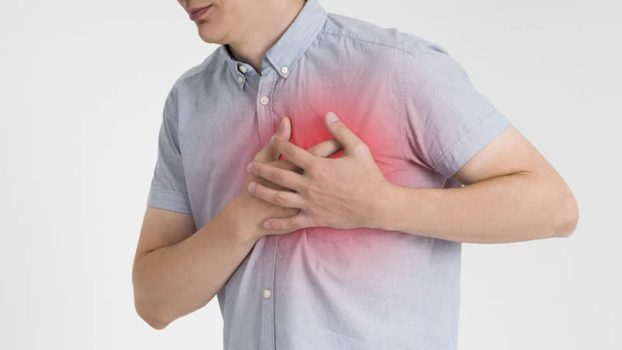Heart palpitations can be defined as a sudden irregularity in the pace of your heart beat. It may seem like it is racing or pounding, or may feel like its missing a few beats. Palpitations can occur even when you are at rest and, for the most part, are not harmful to your health. However, in some cases, it could denote underlying heart conditions, which may become serious complications if not dealt with early on.
Heart palpitations can be caused by various reasons, including:
- Anxiety, fear, stress, etc.
- Exercise
- Pregnancy
- Caffeine
- Overactive thyroid glands
- Low sugar, potassium or oxygen levels
- Fever
- Anemia
- Blood loss
- Certain medications, including cough suppressants, asthma inhalers, thyroid drugs, beta blockers for the heart, nutritional supplements, etc.
- Alcohol
- Smoking
Heart palpitations often occur in females, during pregnancy or menopause, but could happen to anyone regardless of age and gender. It is often felt in the chest, neck or throat regions, and is characterized by the following symptoms:
- Racing or pounding heart beat
- Missing beats or extra beats
- Fluttering heart beat
Heart palpitations usually last from a few seconds to even a few minutes. Although in many cases, this may not be serious, it is imperative to consult a doctor if you are worried about the palpitations, especially if they last longer than several minutes. It is also imperative to seek medical attention if your palpitations are often paired with fainting, intense pain and pressure in the chest, neck or back, as well as trouble breathing.
Diagnosis and Treatment
Since most cases of heart palpitation are never life-threatening, treatment would include home remedies or nothing at all. However, if your heart palpitations are worrisome, a thorough diagnosis will be required, to accurately determine the root cause and the appropriate treatment necessary. The doctor will examine your medical history, including your lifestyle habits as well as medications taken.
Your symptoms will also be noted, including the duration, frequency, as well as immediate causes of the palpitations. Further diagnostic tests may be required to help determine the solution for your case. Some such tests can include blood tests, urine tests, ECG scans, stress tests, Holter monitoring, etc.
Once a thorough analysis is obtained, treatment will be administered accordingly. For non-severe cases, you will be advised to stay away from palpitation stimulants, and follow a healthy and stress-free lifestyle. For palpitations caused by underlying health conditions, treatment will be administered to directly target the illness/disorder.
Prevention and Remedies
Most cases of heart palpitations can be prevented to a great extent by understanding its stimulants and actively avoiding them. For instance, if the palpitations are caused by stress or anxiety, a common advice would be to practice relaxation activities such as yoga and meditation, and actively stay away from additional stimulants like coffee (if that aggravates your anxiety).
Some other steps to prevent heart palpitations could include avoiding:
- Smoking and drinking
- Caffeine
- Spicy foods
- Excessive workouts/exercise routines
Following a healthy diet and lifestyle, while actively avoiding stimulants of any kind, can greatly decrease your chances of getting heart palpitations. However, if your palpitations are caused by an illness/disease, you may need additional treatments along with the lifestyle changes to be made.





